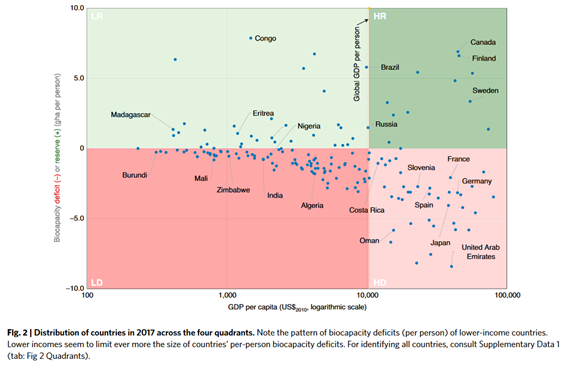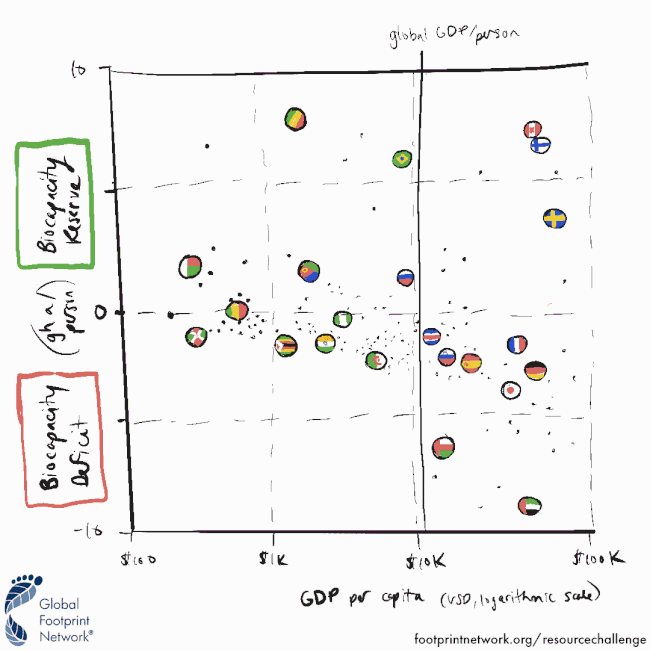April 26, 2021 (Oakland, CA) – In 2017, 72% of people around the world lived in countries with both natural resource deficits and below world-average income, according to a new study led by Global Footprint Network president Mathis Wackernagel and published today in Nature Sustainability. Based on latest available UN data, these findings highlight the vulnerability of national economies exposed to biological resource constraints and may explain how such countries end up in ecological poverty traps.
To maintain progress and eradicate poverty, countries need either sufficient biological resources within their country to match their ecological footprint, or money to competitively buy what they need on markets abroad. When neither of these two conditions are met, countries may end up in an ecological poverty trap — a situation in which the country’s biological resources are insufficient to provide enough food, fibres, building materials and CO2 sequestration, among other factors.
“What worries us even more is the fact that most development strategies across the world are not adequately addressing this vast resource insecurity, thereby becoming severely anti-poor,” said Mathis Wackernagel. “The tragedy is that many strategies exist to improve resource security, but they are not being employed at scale in any country—even though they are the only true value-generating opportunities, as all other resource-depleting activities are ultimately destroying wealth and opportunities,” he added.
Mathis Wackernagel and colleagues compared and classified countries based on their relative gross domestic product (GDP) per capita and ecological deficit (the amount of biological resources they consume in excess of what their own ecosystems can renew) between 1980 and 2017, to analyse the exposure of national economies to resource constraints. The authors found that the percentage of the world’s population living in a country with both a deficit in biological resources and below-world-average income went from 57% in 1980 to 72% in 2017. In addition, the worldwide ecological deficit went from 19% to 73% over the same period.
The authors emphasize strategies exist to enable lasting development, that both advances human development and resource security. They include: the way we build and manage our cities, how we power them, how we feed ourselves, and how many we are. Where financial budgets are scarce, the question is how existing budgets are used to favour solutions that avoid, rather than increase, the likelihood of sliding towards an ecological poverty trap. Once the threshold has been crossed, exiting the trap in the absence of biological and financial resources becomes close to impossible.
##########
Media Contact
Amanda Diep (USA)
Communications Manager
+1 (510) 839-8879 x309
Amanda.Diep@footprintnetwork.org
Resources
The Importance of Resource Security for Poverty Eradication, Nature Sustainability




